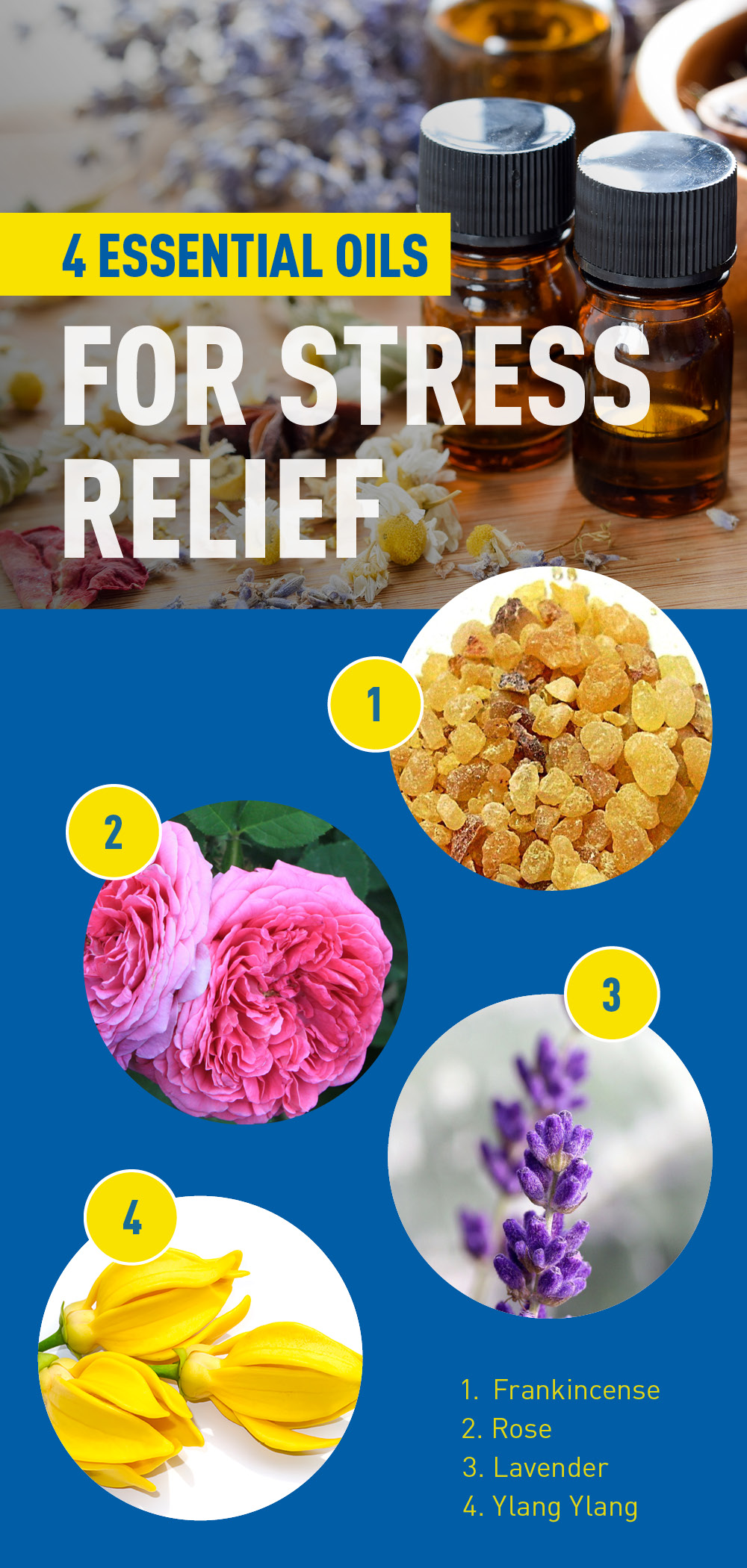Expert Advice

Acella Pharmaceuticals, LLC., is partnering with Heather Procknal, NBC-HWC-CHC, to bring greater awareness to the importance of thyroid care and education. This post was sponsored by Acella Pharmaceuticals and should not be construed as medical advice. Please talk to your doctor about your individual medical situation.
Disclaimer: The information provided is for educational purposes only and does not substitute professional medical advice. Consult a medical professional or healthcare provider before beginning any exercise, fitness, diet, or nutrition routine.
Life can feel like a whirlwind of events, which can be taxing on the mind and body. When you have an underactive thyroid and are stressed, you might have that “wired yet tired” feeling. It’s important to find ways to relax, unwind and alleviate the stress that builds up to prevent hypothyroid symptoms such as brain fog, irritability, restless sleep, and weight gain.
Luckily, there are many natural remedies for reducing stress and promoting relaxation. Aromatherapy and essential oils are among the most popular because they're versatile and easy to use. Today I'd like to share how essential oils may help reduce stress and improve the hypothyroid symptoms that come with it.
What is aromatherapy?
Aromatherapy is a holistic modality using various natural plant extracts to support health and well-being. Essential oils are highly volatile, meaning when you inhale the tiny molecules, they quickly travel to the region of the brain that controls your emotional and mental state. The volatility of the oil is what makes essential oil therapy so fast acting!
How to Use Essential Oils for Stress Relief
You can simply open a bottle of oil and inhale through your nose for a few full breath cycles. It helps if you can sit in a quiet place and allow your body to settle into a comfortable position while you mindfully and slowly breathe in the scent of the oil. If you can’t move to a calm, quiet place while you do this, try closing your eyes for a few minutes as you take deep breaths.
Essential oil diffusers are a great way to reap the benefits of oils while also freshening the smell in your home. Just add a few drops of essential oil to filtered water in your diffuser and allow the fine mist to carry the therapeutic smell to your nose.
In addition to inhaling essential oils, you can benefit from using them topically. Because they are fat-soluble and the molecule is so small, they are able to cross the blood-brain barrier where they can support emotional well-being and influence other fat-soluble hormones, such as thyroid hormones.
Pure essential oils are highly concentrated, so it’s recommended to dilute them with a carrier oil when applying them directly to your skin. A safe dilution for use on the body is between 1% and 3%.
• Dilution for a 1% ratio is about six drops of essential oil to 1 ounce of carrier oil
• Dilution for a 2% ratio is about 12 drops of essential oil to 1 ounce of carrier oil
• Dilution for a 3% ratio is about 18 drops of essential oil to 1 ounce of carrier oil
The most common carrier oil is fractionated coconut oil, but you can also use other oils such as: • Jojoba oil
• Grape seed oil
• Olive oil
• Sweet almond oil
• Argan oil Once you’ve diluted your essential oil with a carrier oil, you can safely massage a small amount on your body and enjoy the benefits! If you’re new to aromatherapy, you might feel overwhelmed with trying to navigate which oils to use and how to use them appropriately and safely. And rightly so, because there are hundreds of different types of essential oils, all with various applications and uses. Certain essential oils can help shift your brain out of a stress response so that your body can relax and heal. This, in turn, can boost your mood and energy levels. Frankincense Essential Oil
Frankincense has been touted as the “king of oils” for its wide range of uses and applications. Used in aromatherapy, frankincense is a powerful expectorant that can help clear the sinuses and reduce congestion, which helps make breathing easier if you have a cold or a chest infection. At the same time, its sedative qualities may help you sleep and reduce stress levels. Studies have shown that frankincense has pain-relieving, relaxing, and anti-bacterial effects.1
Physical stress in your body can accompany mental stress, so this oil is a two-for-one in that it may help relieve pain and relax the mind. You can massage it over tight areas and muscles or calmly inhale the diffused oil to relax your mind and body. Rose Essential Oil
Not only are roses beautiful flowers associated with love and friendship, but the essential oil also extracted from the flower has been used to promote calmness and tranquility.
A 2009 study found a “relaxing effect of rose oil on humans after transdermal absorption.” The report went on to state that "subjects in the rose oil group rated themselves as calmer, more relaxed and less alert than subjects in the control group."2 Another promising study shows that inhaling rose essential oil may help calm the excitatory neurotransmitter adrenaline, thus lowering the stress hormone cortisol.3 This supports claims that inhaling pure essential rose oil or applying it to your skin are simple ways to help relax and calm your mind in times of high stress. Lavender Essential Oil
Lavender essential oil is a popular scent that can be described as smelling herbaceous, floral, fresh, and clean. Lavender is also well-known for its sedative and stress-relieving properties. This essential oil appears in many bath preparations, pillow mists, and commercial products aimed at people who have insomnia. Scientists have studied its relaxing effects for many years and have found that because it is generally safe to use, it can be found in some bedtime baby products as well. Maybe the key to “sleeping like a baby” really is lavender oil? Ylang Ylang Essential Oil
According to some aromatherapy practitioners, the aroma of ylang ylang lifts the spirit and promotes feelings of serenity and romance. It can be described as subtly sweet and richly floral, which might explain why it's used in many perfumes and body oils. But beyond its heady aroma, ylang ylang has some powerful therapeutic benefits as well! In 2006, subjects in a small study rated themselves calmer and more relaxed than subjects in the control group after the transdermal absorption of ylang ylang essential oil. “These findings are likely to represent a relaxing effect of the ylang ylang oil and provide some evidence for the usage of the ylang ylang oil in aromatherapy such as causing a relief of depression and stress in humans.”4 Hopefully, you now feel confident about incorporating aromatherapy into your routine. So treat yourself to an essential oil diffuser or mix your oils with a carrier oil for a relaxing self-massage so you can relax and recharge. Aromatherapy is a form of self-care that you won't regret! You can read more about creating a self-care ritual here: https://npthyroid.com/tipsresource/self-care-support-healthy-thyroid-function/ REFERENCES: 1. Al-Yasiry, A. R., & Kiczorowska, B. (2016). Frankincense--therapeutic properties. (Online), 70, 380–391. https://doi.org/10.5604/17322693.1200553. 2. Hongratanaworakit T. (2009). Relaxing effect of rose oil on humans. Natural product communications, 4(2), 291–296. 3. Mika Fukada, Eri Kano, Michio Miyoshi, Ryoichi Komaki, Tatsuo Watanabe, Effect of “Rose Essential Oil” Inhalation on Stress-Induced Skin-Barrier Disruption in Rats and Humans, Chemical Senses, Volume 37, Issue 4, May 2012, Pages 347–356, https://doi.org/10.1093/chemse/bjr108. 4. Hongratanaworakit, T., & Buchbauer, G. (2006). Relaxing effect of ylang ylang oil on humans after transdermal absorption. Phytotherapy research : PTR, 20(9), 758–763. https://doi.org/10.1002/ptr.1950. ML-1251-v1Which oils are best for calming the mind and body?
Four Thyroid-Supportive Essential Oils to Help Ease Stress and Calm the Mind




The Power of Essential Oils for Stress Relief

Note that DTE products, including NP Thyroid®, have not been reviewed by the FDA for safety or efficacy.
IMPORTANT RISK INFORMATION, INCLUDING BOXED WARNING & INDICATIONS
Important Risk Information
Drugs with thyroid hormone activity, alone or together with other therapeutic agents, have been used for the treatment of obesity. In euthyroid patients, doses within the range of daily hormonal requirements are ineffective for weight reduction. Larger doses may produce serious or even life-threatening manifestations of toxicity, particularly when given in association with sympathomimetic amines such as those used for their anorectic effects.
- NP Thyroid® is contraindicated in patients with uncorrected adrenal insufficiency, untreated thyrotoxicosis, and hypersensitivity to any component of the product.
- In the elderly and in patients with cardiovascular disease, NP Thyroid® should be used with greater caution than younger patients or those without cardiovascular disease.
- Use of NP Thyroid® in patients with diabetes mellitus or adrenal cortical insufficiency may worsen the intensity of their symptoms.
- The therapy of myxedema coma requires simultaneous administration of glucocorticoids.
- Concomitant use of NP Thyroid® with oral anticoagulants alters the sensitivity of oral anticoagulants. Prothrombin time should be closely monitored in thyroid-treated patients on oral anticoagulants.
- In infants, excessive doses of NP Thyroid® may produce craniosynostosis.
- Partial loss of hair may be experienced by children in the first few months of therapy but is usually transient.
- Adverse reactions associated with NP Thyroid® therapy are primarily those of hyperthyroidism due to therapeutic overdosage.
- Many drugs and some laboratory tests may alter the therapeutic response to NP Thyroid ®. In addition, thyroid hormones and thyroid status have varied effects on the pharmacokinetics and actions of other drugs. Administer at least 4 hours before or after drugs that are known to interfere with absorption. Evaluate the need for dose adjustments when regularly administering within one hour of certain foods that may affect absorption.
- NP Thyroid® should not be discontinued during pregnancy, and hypothyroidism diagnosed during pregnancy should be promptly treated.
Indications
NP Thyroid® (thyroid tablets, USP) is a prescription medicine that is used to treat a condition called hypothyroidism from any cause, except for cases of temporary hypothyroidism, which is usually associated with an inflammation of the thyroid (thyroiditis). It is meant to replace or supplement a hormone that is usually made by your thyroid gland.
NP Thyroid® is also used in the treatment and prevention of normal functioning thyroid goiters, such as thyroid nodules, Hashimoto’s thyroiditis, multinodular goiter, and in the management of thyroid cancer.
Revised
10/2023
You Are About To Leave This Website
By clicking continue, this link will take you to a website to which Alora Pharmaceuticals’ Policies & Terms of Use do not apply.
